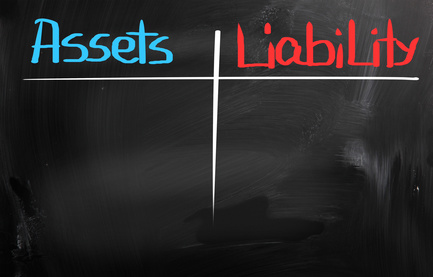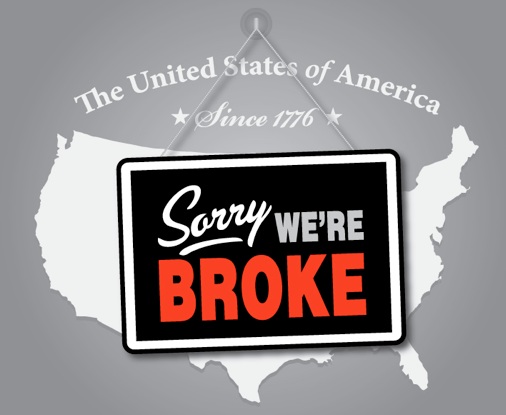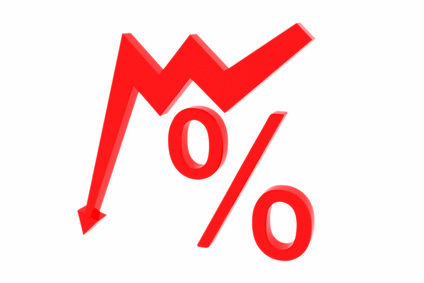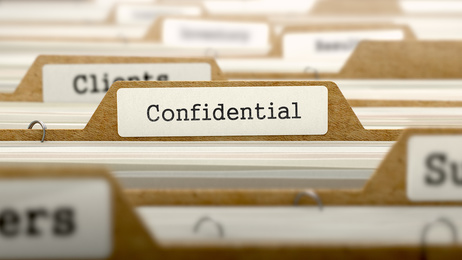Safety, privacy and yield are important concerns for anyone with large amounts of cash…most of which is stored in bank accounts.
As your real estate portfolio grows, so do your deposits, maintenance reserves and float. And if you’re waiting for that next great opportunity, you may have a chunk of cash on hand for that too!
 But in a world of insolvent banks, debt-ridden governments, financial predators, high tech snooping and identity theft, and painfully low yields…
But in a world of insolvent banks, debt-ridden governments, financial predators, high tech snooping and identity theft, and painfully low yields…
How can you best protect your cash reserves?
Wouldn’t it be great if you could get insurance against all these risks…and get paid to own it?
You can.
In studio to explain how many savvy investors and mega-corporations mitigate the risks of holding large and growing piles of cash:
- Your high-yield host, Robert Helms
- His very private co-host, Russell Gray
- Special guest and private banking expert, Patrick Donohoe
No matter where you are in your investing career, we’re guessing you have or hope to have LOTS of cash. It’s just like hoping you pay a lot in taxes.
Really.
While you do your best to keep the percentage of tax you pay down, in terms of absolute dollars, you should be hoping it’s a HUGE number. It means you’re making a lot of money. Think about it.
So even though we like to keep our cash deployed and working, as our portfolio grows so does the amount of money sitting in and flowing through our bank accounts.
This means in addition to managing debt, equity and cash flow… a VERY important part of successful investing is managing liquidity.
In an interview with Donald Trump, the Donald told us it’s important it is to always have some cash on hand. It’s what you use to put out fires, act quickly when opportunity knocks, and to meet what you you hope is a growing amount of profitable expenses.
But in today’s economy, there are some real concerns about holding cash:
Counter Party Risk
Counter party risk is what you’re exposed to when your asset is simultaneously someone else’s liability. This is the relationship your tenants have to you when they trust you with their rental deposits.
 And it’s the same relationship you have with the bank when you place your tenants’ deposit in your bank account.
And it’s the same relationship you have with the bank when you place your tenants’ deposit in your bank account.
You owe the tenants and the bank owes you. Your bank account is the bank’s liability.
The danger is that many banks are financially weak. Thanks to FDIC insurance, most depositors never worry about this. But that’s not smart.
The bank is like your tenant in that you’re giving them use of your property. In this case, the property is cash.
You wouldn’t rent your property out without checking the tenant’s credit and financials, right? And if they turn out to be weak, you either reject them or ask for a co-signer.
In this case, the co-signer is the Federal Deposit Insurance Corporation (FDIC). But what if the co-signer also has bad financials?
Right now, the billions in assets the FDIC has relative to the TRILLIONS it insures means the FDIC reserves are completely inadequate if there’s a major financial crisis.
And there are some SERIOUS tremors reverberating through the global financial markets as we speak. (Actually, we’re typing and you’re reading…but you get the idea…)
So if the co-signer is weak, you either reject them or ask for yet another co-signer. In this case, the FDIC co-signer is the U.S. government.
But according to the U.S. government’s very own publicly reported financial statements, the U.S. government has a negative net worth and negative cash flow.
 In other words, the U.S. government is essentially insolvent. All they have is a virtually unlimited credit line…until they don’t.
In other words, the U.S. government is essentially insolvent. All they have is a virtually unlimited credit line…until they don’t.
Would you rent to someone who’s broke…who’s co-signed by someone who’s broke…who’s backed by someone who’s broke and only able to pay their bills using their credit card?
No wonder the U.S. government buried a bail-in provision in the Dodd-Frank legislation which took effect in January 2014.
Why would the U.S. government give the banks the power to take your deposits if they fail…unless they think there was a chance they would need it?
So “money in the bank” doesn’t have the same level of safety as it once did.
Most people are sadly ignorant of the risk. And even if you are aware, what do you do about it?
We went looking for an answer…and found a concept called private banking.
So if you’re a mid-size real estate mogul with more than $250,000 in cash sitting in the bank at any one time, you’ve got a risk you should think about mitigating….because if you’re holding your tenants’ deposits in a bank that fails beyond the FDIC’s ability to cover you, YOU still owe the money to the tenants.
In other words, YOU have effectively co-signed for the bank. Make sense?
But don’t panic.
Private banking allows you to store cash where it’s backed by much stronger balance sheets.
But what about another major concern about keeping a lot of cash in the bank, which is…
Low Yield
While low interest rates are fun as a borrower, low interest rates are terrible if you have a lot of cash on hand.
It takes time and effort to manage the cash, and today you can’t even count on the interest income to help offset the expenses.
Worse, you’re taking risks as we previously described, but not getting paid any compensation for it.
Plus, someone else (the bank) is getting the use of your money, on which they profit, and you don’t get compensated for that either.
It’s a racket. And you’re on the wrong end of it.
That’s why we always try to keep our cash invested and moving. But when you MUST hold cash, it can be frustrating.
BUT…
What if there were a way to put your cash in a place outside the banking system, where it is guaranteed by much stronger balance sheets than the banks…AND you could get a credit line to access it whenever you wanted?
And what if that “account” pays you interest at DOUBLE the rate of the banks when you aren’t using it, but charges you a net effective rate of ZERO to borrow whenever you need it? And you don’t have to qualify!
And what if the loan doesn’t show up on any of your credit reports or affect your credit in any way…even if you decide not to pay it back?
That’s the way private banking with properly structured insurance contracts work. It’s amazing.
But it gets better…
Privacy
Privacy, or lack thereof, is a growing concern for many investors…real estate and otherwise.
 Between the government, treasure hunting lawyers, creditors and identity thieves, there are lots of people out there looking for piles of cash to get their hands on. And banks are the obvious place to look.
Between the government, treasure hunting lawyers, creditors and identity thieves, there are lots of people out there looking for piles of cash to get their hands on. And banks are the obvious place to look.
What many folks don’t realize, is that because banks are all part of a system that is computerized, centrally managed and carefully indexed, it’s pretty easy for people to find everything you have…in that system.
The obvious answer is to find a way OUT of the system. And if you can do it, while IMPROVING your safety and yield, all the better!
Insurance contracts are private agreements between private parties.
They aren’t part of the banking system. So insurance equity doesn’t show up in asset searches…unless you lose a lawsuit and are compelled by the court to disclose it.
But even then, the asset itself is very difficult for a creditor or government agency to seize.
So not only are the contracts private, but the equity is extremely hard to reach for anyone…except you.
Of course, we’re just real estate guys. We’re not insurance, legal or tax advisors. So you should check with your own advisors before doing anything.
We just get excited when we see something that can solve so many problems in just one product.
So listen in to this episode as we talk with our good friend Patrick Donohoe about the amazing concept of private banking.
Listen Now:
- Visit our Special Reports library.
- Don’t miss an episode of The Real Estate Guys™ radio show. Subscribe to the free podcast!
- Stay connected with The Real Estate Guys™ on Facebook!
The Real Estate Guys™ radio show and podcast provides real estate investing news, education, training and resources that help real estate investors succeed.













